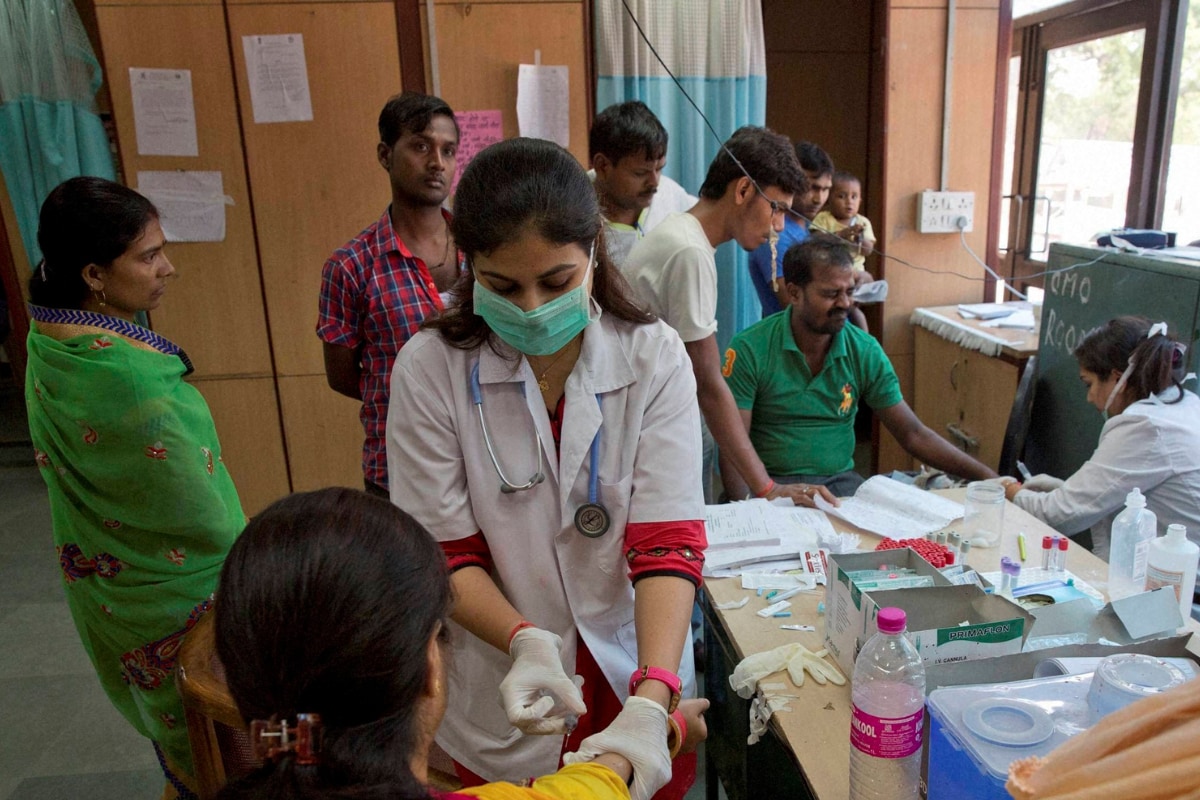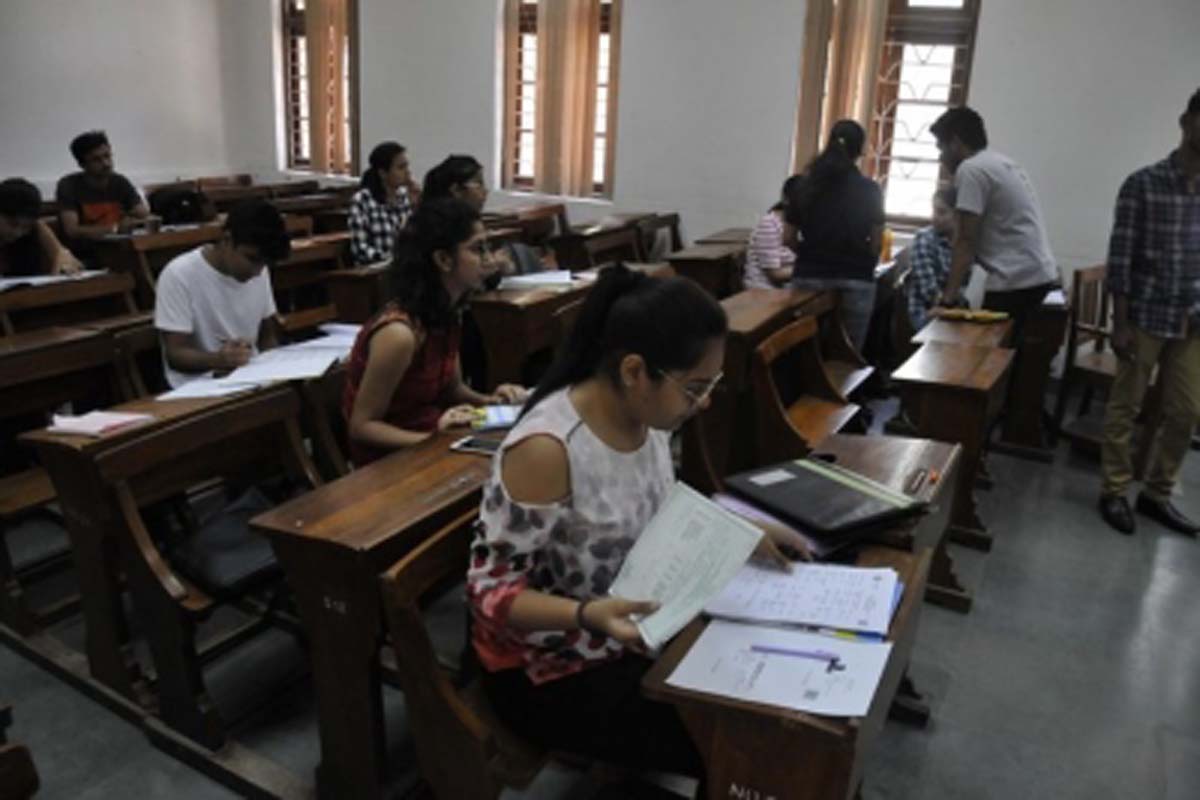
Fever cases have been on the rise across India with Delhi-NCR witnessing a spike in cases of swine flu, multiple doctors told News18. Hospitals, especially in Maharashtra, Karnataka, and Kerala have been reporting a spurt in cases of fever triggered due to unusually heavy rainfall leading to a spurt in cases of dengue, swine flu and other viral infections. In Delhi-NCR, hospitals have been witnessing patients of all ages including school-going children with symptoms such as fever, cough, chest discomfort, body aches, and, in some instances, shortness of breath.
In recent weeks, Dr Gaurav Jain, senior consultant, internal medicine at Delhi-based Dharamshila Narayana Hospital, said, they have been witnessing a surge in cases of viral infections, particularly Swine Flu (H1N1). “At our OPDs, we are dealing with over 50 cases of swine flu per week, with symptoms ranging from mild to severe.” A similar trend is spotted by an Indian multinational chain of diagnostic labs, Metropolis Labs but on a national level.

Surendran Chemmenkotil, CEO, Metropolis Healthcare told News18 that this year, they have witnessed a 15-20 per cent increase in fever diagnostic test consumption, largely due to the rise in disease incidence during the monsoon season. “Demand surged particularly in July, August, and September, with states like Maharashtra, Karnataka, and Kerala seeing higher test volumes due to heavy rainfall and a spike in fever-related illnesses,” he said. Metropolis – which is the second-largest diagnostic company in India and the largest player in western and southern India – has noticed that fever cases in August and September increased compared to July.
“Unlike previous years, the fever season has been more prolonged, with consistent intensity across these three months,” Chemmenkotil said while adding that “in September, unusually heavy rains in cities such as Mumbai and Delhi further drove demand for fever diagnostic tests.” Dengue and viral infections were the main contributors to this surge, adding strain on healthcare and diagnostic services in the affected regions. According to Dr Amitabh Parti, director and unit head, internal medicine at Gurugram-based Fortis Memorial Research Institute (FMRI), swine flu is hitting not just adults but also children.
“Swine flu, caused by the H1N1 and H3N2 variants, has seen a recent surge in cases, affecting not just high-risk groups but also school-going children.” Similarly, Dr M Wali, senior consultant, internal medicine at New Delhi-based Sir Ganga Ram Hospital said he has seen multiple cases of Swine Flu in the last seven days. “I have seen five cases of swine flu in the last seven days and the majority of these patients are those who have travelled recently.
” “Usually people catch swine flu while travelling. It starts with a choking, irritation in the throat with a slight cough.” In September, Agilus Laboratory witnessed a 15 per cent increase (over August) in fever panel tests at the in Gurugram reference lab.
Fever panel tests typically cover diseases like dengue, H1N1, chikungunya, typhoid, flu, malaria, leptospira, scrub typhus and other tests like complete blood count, ESR, and CRP among others. Anand K, managing director and CEO of Agilus Diagnostics explained that “September test volumes are notably higher compared to June and July, which is consistent with the typical fever season.” The rainy, humid weather fosters ideal conditions for mosquitoes and other disease-carrying vectors, resulting in a surge of patients reporting high fevers, headaches, and flu-like symptoms.
“Fever panel tests are essential for early diagnosis, helping to manage outbreaks effectively,” Anand K said. Common symptoms include a sore throat, runny nose, dry cough, body aches, and weakness. In severe cases, it can lead to shortness of breath, pneumonia, and oxygen desaturation.
While most cases resolve with antiviral medication or on their own, Parti from Fortis Memorial Research Institute (FMRI) said that the elderly, diabetics, asthmatics, immunocompromised individuals and children are at higher risk of complications. “Typically, a 5-day antiviral therapy aids recovery, with a 5-day quarantine recommended to prevent transmission.” Swine flu can become life-threatening if pneumonia develops, particularly in vulnerable groups.
“The best protection is the annual flu vaccine, especially for high-risk individuals like frequent travellers, the elderly, and school children. Additionally, office goers and children are advised to wear disposable masks until they are proven infection-free, as an extra layer of prevention,” Wali from Sir Ganga Ram Hospital advised. Dr Koulsom Hossein, consultant, general medicine at Holy Family Hospital in Bandra has been noticing that the recovery time for most individuals is around 7 to 10 days with adequate rest and antiviral treatment such as oseltamivir.
Experts have recommended early detection to reduce the risk of complications. If anyone in the household develops a fever or persistent cough, it is important to isolate them for at least five days to prevent spreading the infection further..










